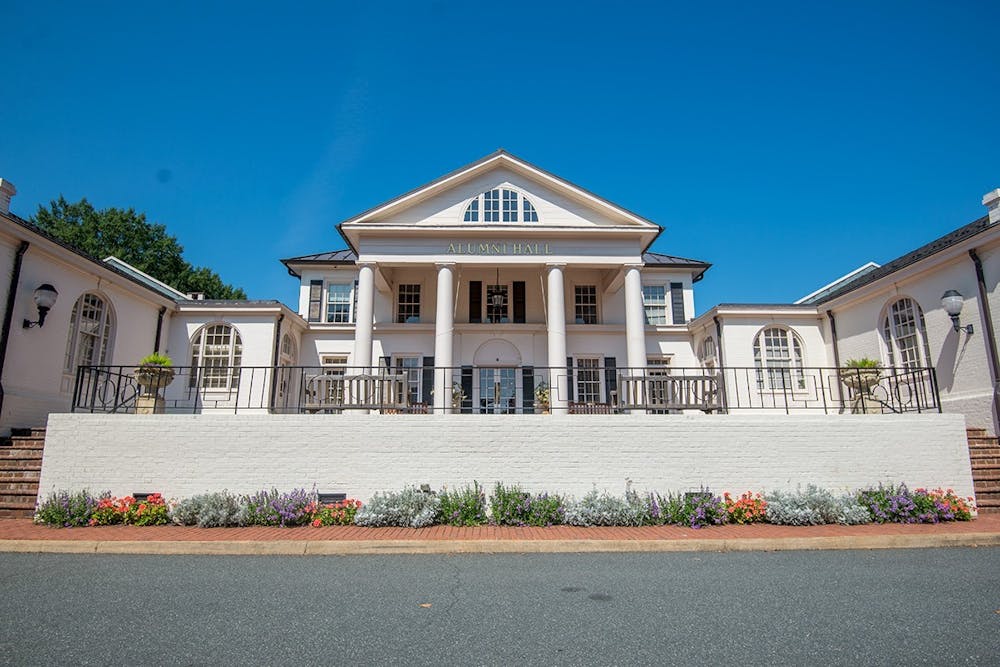Results for the Class of 2026’s first-year representatives were released Wednesday. After an intense campaigning process, the Class of 2026 elected a First-Year Council president and vice president, as well as three representatives to the Student Council.
First-year College students Keoni Vega and Annie Zhao were elected First-Year Council President and Vice President, respectively. First-year College students Imane Akhanous and Noelle Koo and first-year Education student Chloe Anderson were elected Student Council First-Year Representatives.
In the final round of ranked voting, Vega was elected by 679 votes, Zhao by 733, Akhanous by 277, Koo by 234 and Anderson by 181.
First-Year Council is responsible for representing and organizing events for the members of the Class of 2026. New student elections are intentionally placed midway through the fall semester in order to include new members of the University community.
Candidates used a variety of strategies to gain name recognition and publicize their platform, including chalking, flyering, TikTok and face-to-face interaction. Zhao said she stood outside of the dining hall so she could meet voters.
“It's really important to put a face to the name,” Zhao said, “It's easy … to put a poster up, but at the same time it’s even more important to make a genuine connection to show that you do care about your class and you're not running for clout or to boost your ego.”
Despite the competition, Zhao said the environment was uplifting as she ran alongside her friends and peers.
“Seeing all the work that people have put into running reassures me that whoever [won], it [would] be good because [everyone is] so dedicated,” Zhao said.
Luke Lamberson, chair of the University Board of Elections and third-year Commerce student, said he feels enthusiastic about the competitiveness of these races. Nine individuals ran for president, seven ran for vice president and 18 for the representative.
“To me, that’s really exciting because it means that not only do people care enough to run, but that voters have a lot of great choices, which is good not only for the election, but the state of self-governance at U.Va.,” Lamberson said.
First-year College student Bryn Little said these past few weeks have been crucial to her understanding of how First Year Council differs from other student self-governance groups on Grounds, such as Student Council, College Council and Association Council.
“I had some confusion about the roles and responsibilities of First-Year Council officers, but that has largely gone away,” Little said.
Because of the length of the campaign season, voters had a relatively short time frame to decide who to cast their ballots for.
“It was a little difficult to do research on the platforms of each person running,” Little said. “But having their statements all in one place [through links on the ballot] was definitely helpful.”
The online ballot incorporated ranked choice voting, where voters were encouraged to list their top preferences.
“Everyone’s first choice is tabulated behind the scenes by the computer system once polls close, and if no one reaches a 50 percent majority, the last-place candidates are eliminated,” Lamberson said “The second choices of the people who voted for them are then repopulated into the counting.”
In order to get the word out about the ongoing election, UBE also handed out “I Voted” stickers.
After winning their respective races, Vega and Zhao will meet with the senior associate director of student engagement in the coming days to begin formatting their committees and discussing their plans for running First-Year Council.
“Annie and myself want to push the bounds of what FYC typically does,” Vega said. “We campaigned on hosting bigger and better events to unite the first-year class. We also campaigned on bridging the gap between the administration and student body and are currently in touch with President Ryan’s office and hope to establish a meaningful connection.”







